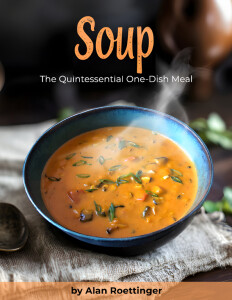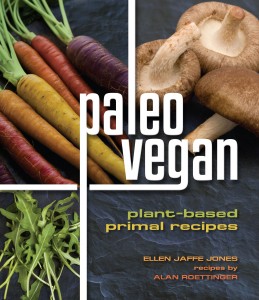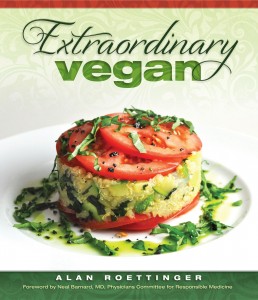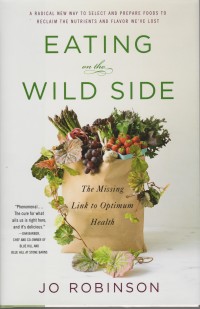For some reason, today I was remembering the controversy that arose from France’s refusal to participate as an ally in America’s invasion of Iraq, and the reaction from some of the more bellicose members of Congress. There was quite a bit of France-bashing at that time. Hilariously, a decision was made to officially rename the french fries served in the Congressional dining halls, “freedom fries.” I remember joking that they might want to continue on that theme, with “freedom beans,” freedom wines,” “freedom accent,” and of course, “freedom letter” and “freedom kiss.”
Don’t worry, I’m not about to launch into a discussion of the rather childish, petulant nature of this or any other of the nation’s elected representatives’ debates and subsequent decisions. No, what struck me most was the lack of freedom represented by the standard American diet itself, revolving as it does, around a pathetically limited variety of foods. With the vast array of possibilities available to eaters in the most affluent country in the history of the world, most Americans seem to choose hamburgers and french fries (or fried chicken, fried fish fillets, or a deli meat sandwich and fries). Relentlessly, every day. Why?
I suspect that the principal reason is cultural inertia. We tend to eat what we’re accustomed to–familiar foods to which we were habituated as children. It’s more than an issue of mere comfort. It also has to do with family and tribal identity. Many immigrants from other countries make great effort to obtain the ingredients, and in some cases implements, needed to make their traditional foods when they move to America. I’ve heard heated discussions between family members around the subject of young people abandoning the diet of their origins and taking up the American diet, perceived by the elders as inferior (a perception with which tend to I agree). The young quite naturally choose whatever helps them blend in and gain acceptance among their peers, leading to a new cultural inertia of their own.
I was fortunate to grow up bi-cultural, an American in Mexico, eating a very limited menu of American food with my family, and a wildly varied assortment of Mexican dishes at my friends’ homes and in restaurants. This may have contributed to my unusually adventurous attitude toward food, or it may simply be my nature; I honestly don’t know.
What I do know is that in order to obtain all the essential nutrients, phytonutrients, enzymes, probiotics, antioxidants, and other micronutrients that make up a truly health-promoting diet, we need to eat a wide variety of foods, from fresh, whole, organic sources. To get the most out of this diet, and to prevent some diseases, we also need to eat a lot of our food raw; we especially need to sharply limit fried food, especially deep-fried, highly processed food, and foods that have been charred, as these are known to be carcinogenic. Yet somehow, many people remain enslaved to the convenience and manufactured tastes of modern fast food.
There will be a lot of talk today about freedom, and how it’s not free, but has been won for us by the sacrifice of brave souls who fought, killed and died to make our way of life possible. On one level, I can’t dispute this; my own father gallantly participated in the second World War, the outcome of which would perhaps have been disastrous for Americans had they not prevailed. On the other hand, my experience tells me that freedom is not something that is won for me by someone else, but a feeling I must awaken to and claim for myself. I must be vigilant and keep that feeling alive within me, moment by moment, lest I fall asleep and lose it. It’s the freedom from suffering, from ignorance, fear, anger, hatred, intolerance, and mediocrity. This, even prisoners doing hard time can experience.
As far as the fries go, and sugar, and alcohol, and all the other things known to cause health problems, I realize that a little every now and then won’t kill me. The body is marvelously resilient and capable of self-cleansing, given enough time, rest, clean water, and proper nourishment. Sometimes we get an urge to flirt with our own destruction, to test the limits of our mortality, stretch the envelope and enjoy the thrills. You could say that this is one practical way to express our freedom, of contrasting it with timid compliance. There is a scene in the film, “Interview with the Vampire,” where one of the vampires runs his fingers slowly across the flame of a lit candle, his face revealing a decadent pleasure as they singe black, and then immediately regenerate. Vampires, the lore has it, can be destroyed by fire, but will heal almost instantly from a small, brief burn like this.
For me, dedicated hedonist that I have always been, this testing of the limits of self-destructive pleasure has been a lifelong experiment. As I grow older, I find that I can no longer get away with the same level of indulgence I could afford as a teenager, or as a twenty-something. My body doesn’t regenerate with the same speed and thoroughness. I want to live and live well, so I must be much more discriminating in my diet and activities. My goal is to enjoy ALL of my life, not just the first few years, or a few isolated moments. To accomplish this, I need to be wise and watchful, and careful to choose those things that truly benefit me. In terms of food, this means, as a strict rule, eating as well as I can, and keeping the exceptions I permit myself brief, fairly rare, and of excellent quality.
It might not be a terrible idea for us to consider changing our nomenclature a bit, the better to support wise choices. Instead of “French fries”or “Freedom fries,” for example, how about a more honest, realistic name, like “Death fries?” We’d still be free to flirt with death, like Armand the vampire, but at the very least we could be making an informed decision, and choose to do it lightly, allowing our body to recover before assaulting it again.







Thanks for your share experience with us. I just want to say: your post is too useful to everyone!!!!! I would like to visit your blog everyday!!!!!